The word quarantine is another word from the Venetian language that has survived until today.
When the Venetians had to confront the Black Plague in the 1300s and 1400s, they first created a hospital in 1423, and then a quarantine station in 1468 on the island later known as Lazzaretto Nuovo.
Initially, the isolation period varied a lot. It could be twenty, thirty, forty or even more than fifty days. One of the many writings in the Tezon Grando on the Lazzaretto Nuovo island mentions that the crew of a galleon named Somachio spent fifty-three days in isolation in 1593.
However, as the Venetians gathered experience running the lazzaretti, they ended around a forty day period.
Why forty days quarantine?
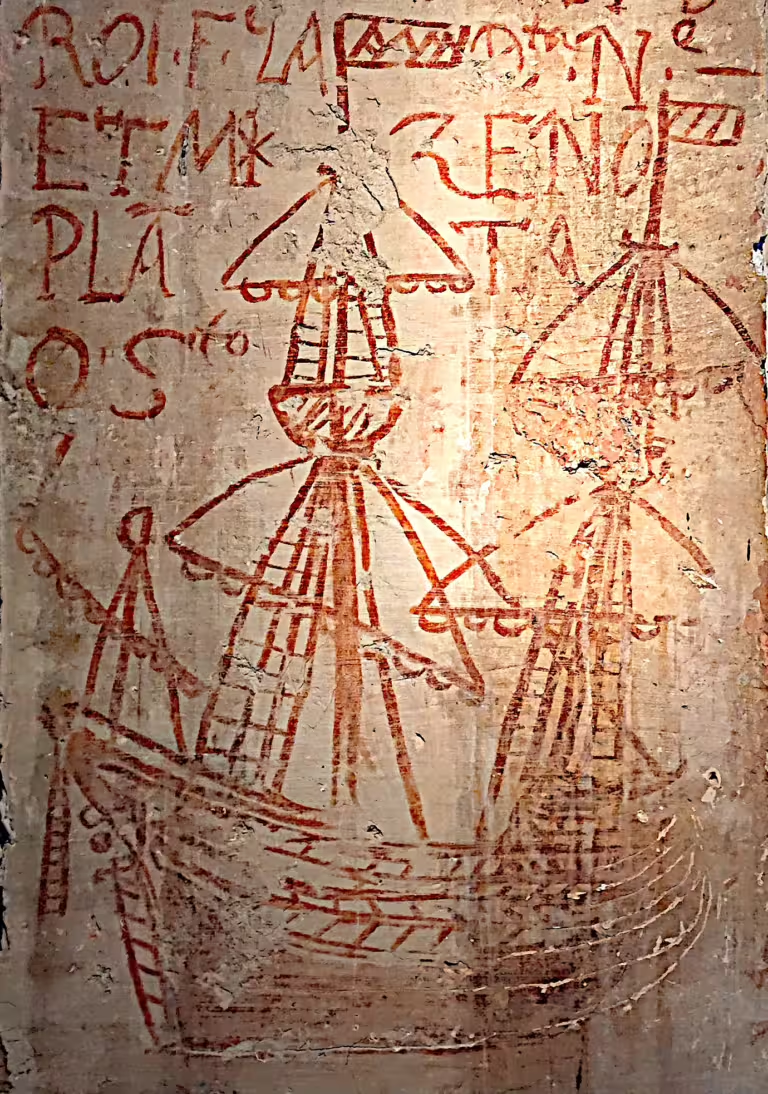
The choice of forty days was not random. There are two main reasons.
Firstly, over time the Venetians realised that a period of around forty days was sufficient to be absolutely sure a person didn’t carry the contagion of the plague.
The incubation period for the infection is shorter than that, about one week, but that knowledge is modern. We know a lot about how the plague works, and consequently we have cures, but people back then didn’t.
In any case, forty days is more than sufficient, and that is what’s important. Even if it could have been more precise, they still got it right.
Secondly, there’s a religious reason. Forty is a good Christian number. Forty days of Easter and forty days of Lent makes it a better choice than, say, thirty-seven or forty-two.
A quarantina of something
It is common to have words or expressions for imprecise numbers, like ‘about a dozen’ or a ‘good handful’.
In Venetian (and Italian) such round about numbers can be made using diminutives of round numbers. Twenty, venti, becomes a ventina, about twenty. Likewise thirty, trenta, and a trentina. Forty, quaranta, then becomes a quarantina, meaning forty-odd something.
People were then kept in isolation for forty-odd days, hence a quarantina di giorni.
When sailors, merchants and other travellers came out of the Lazzaretto Nuovo, they had done their quarantina.
Contumacia

The Venetian authorities, who ran and managed the lazzaretti, didn’t use the word quarantine.
Instead, they used the Venetian word contumacia (or sometimes contumasia). Contumacia in Venetian simply means isolation.
It also became the name of the individual compartments of the Lazzaretto Nuovo. They had names like Contumacia del Pra’ and Contumacia del Marinaio.
Islands and isolation
Another common words related to quarantine is ‘isolation’.
The origin is from Latin. An island is insola, being on an island means not having easy contact with others, being separated, so in English we have ‘insulation’.
In the vernacular the ‘n’ disappeared, hence isola like in Venetian and Italian (both descended from vulgar Latin), and from there ‘isolation’.
More about Venetian words
Venetian words that are still in common use include arsenal, ballot, ciao, ghetto, lazzaretto, and quarantine.
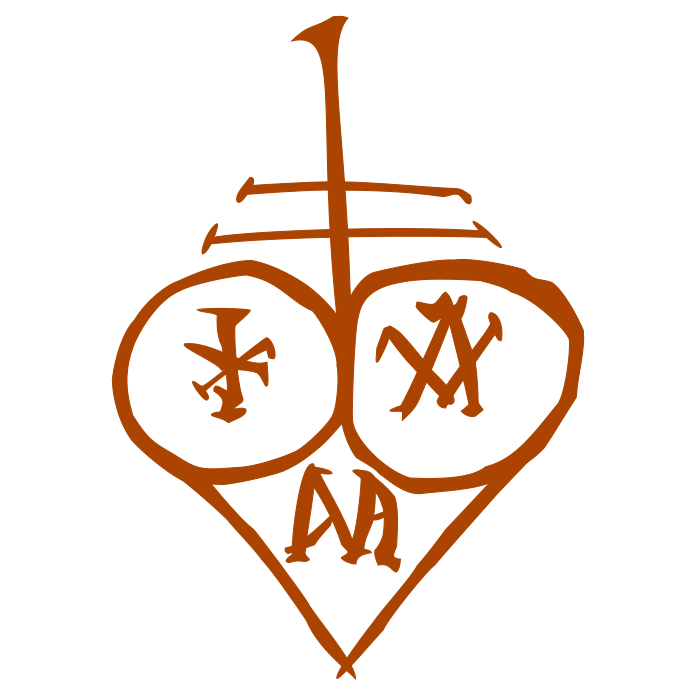

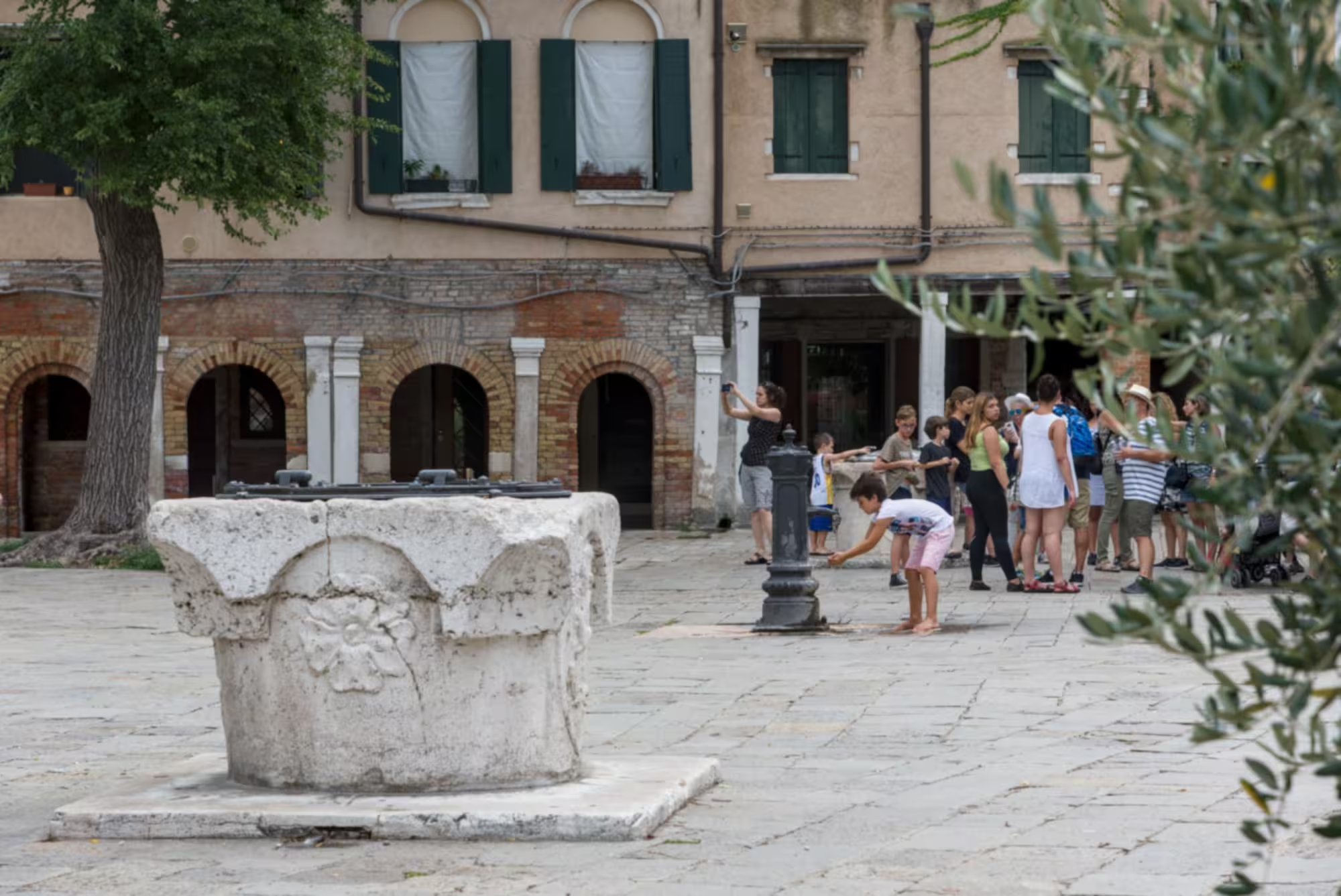

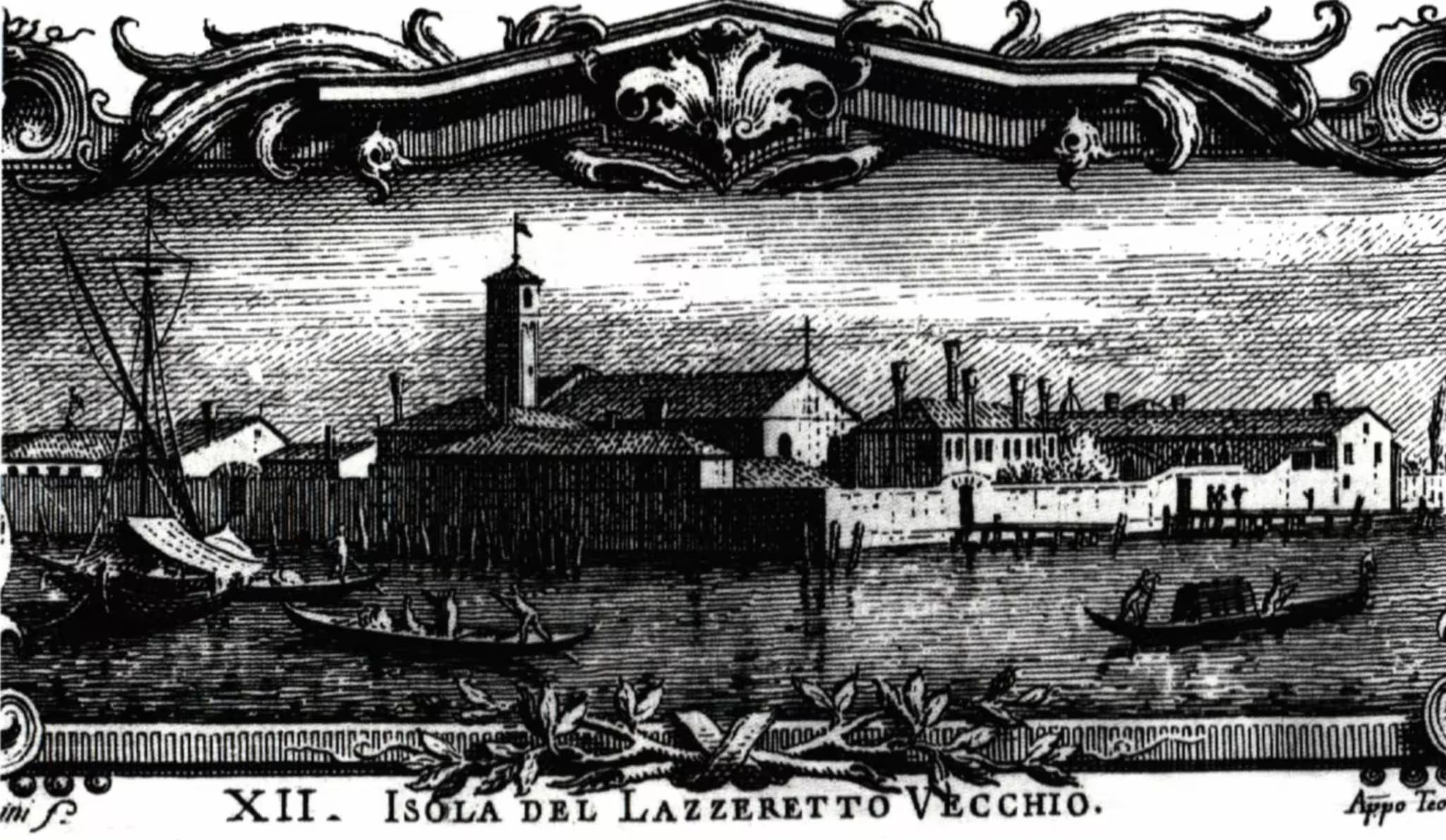

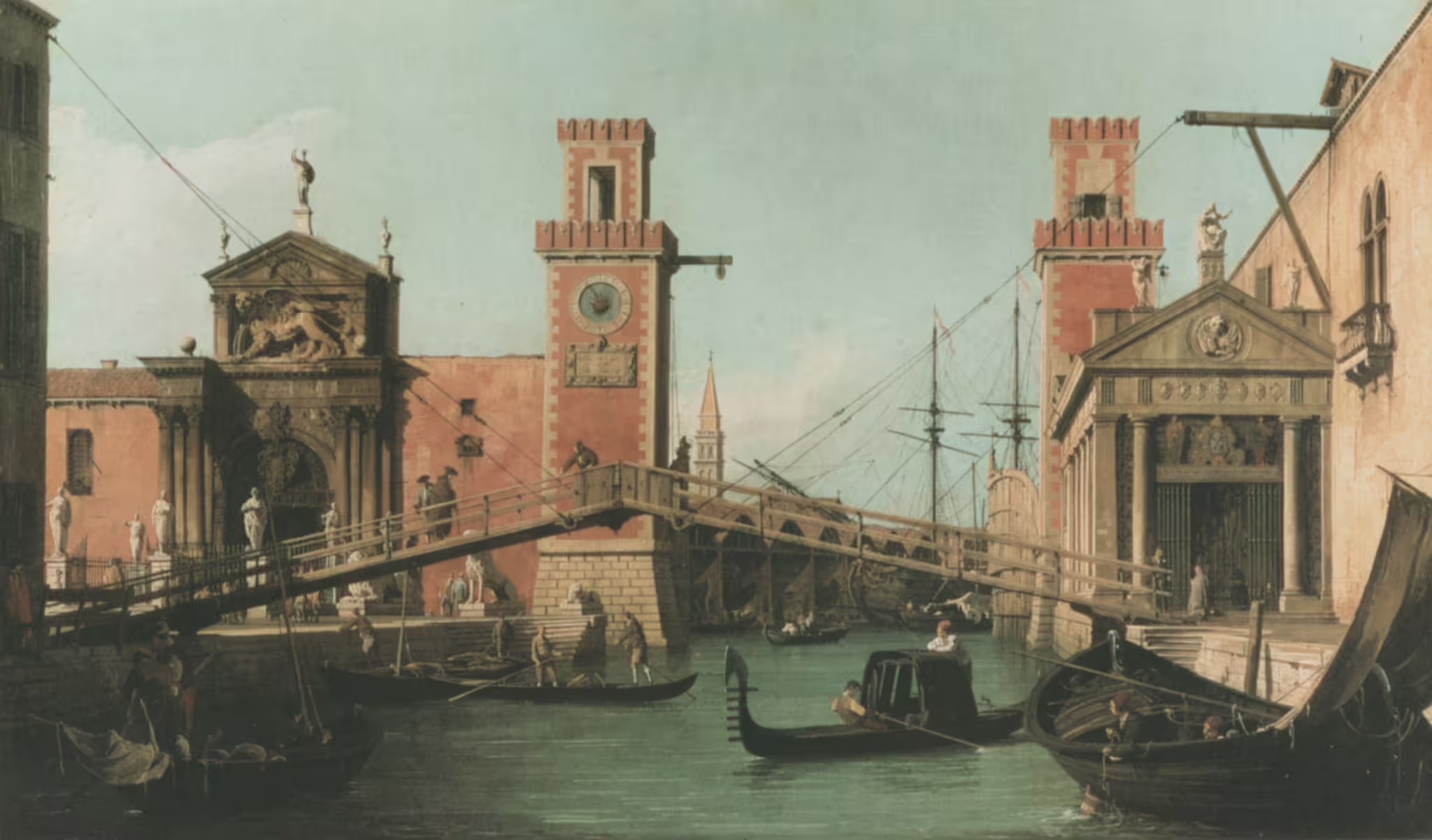
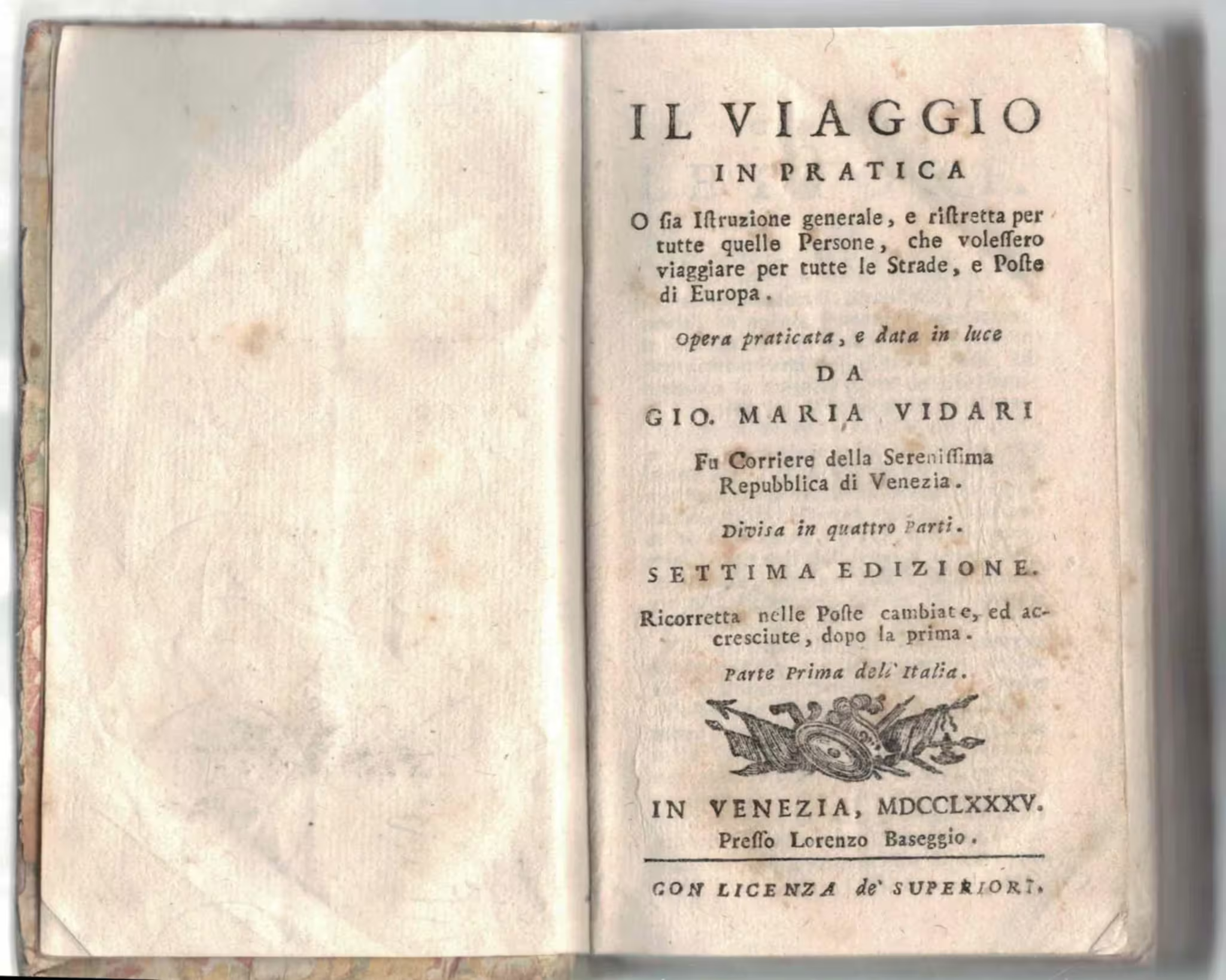
Leave a Reply